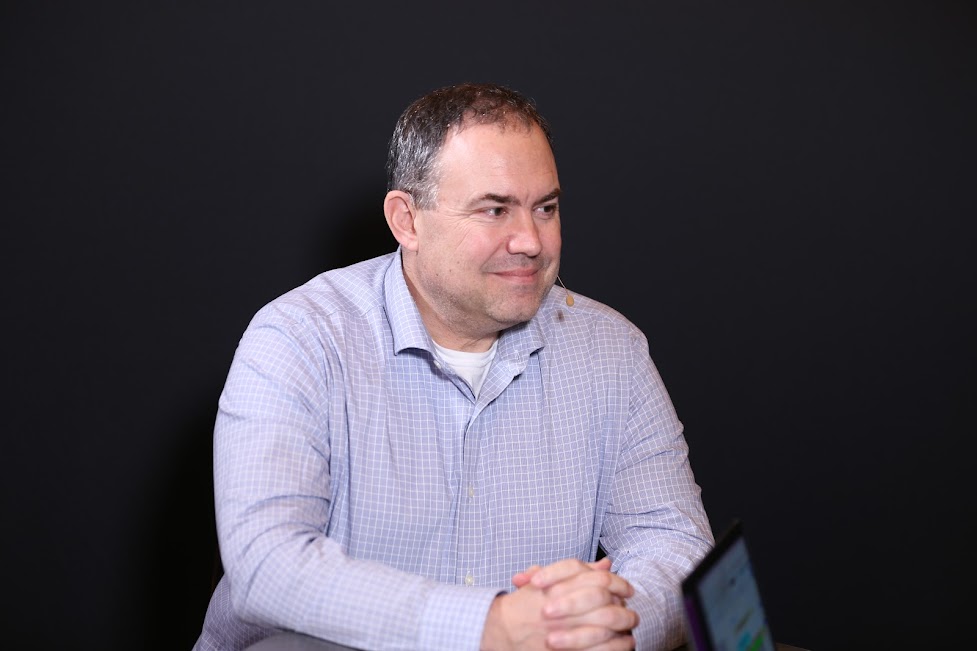 CLOUD
CLOUD
 CLOUD
CLOUD
 CLOUD
CLOUD
It is no coincidence that the rise of Kubernetes paralleled the growth of the cloud. The container orchestration tool has reached a point in its maturity where major cloud providers such as Amazon Web Services Inc. view the technology as a central gateway into a public cloud platform.
“It’s gone to a level of maturity where the amount of dependence on Kubernetes is now huge,” said Barry Cooks (pictured), vice president of Kubernetes at AWS. “The Kubernetes API is how people want to get into the cloud and run things. It is the front door to the cloud now.”
Cooks spoke with theCUBE industry analyst John Furrier at the “Supercloud 5: The Battle for AI Supremacy” event, during an exclusive broadcast on theCUBE, SiliconANGLE Media’s livestreaming studio. They discussed the growth of EKS and support for generative artificial intelligence.
Amazon’s Elastic Kubernetes Service, a management solution for the container tool, officially became available in 2018 and celebrated its five-year birthday during AWS re:Invent last month. Cooks sees generative AI as another technology that will fuel Kubernetes growth in the enterprise.
“Generative AI obviously is getting all of the attention these days,” he said. “You really need a lot of cycles of compute, you’ve got to run it and we’ve seen explosive growth of that in Kubernetes for EKS in particular.”
In response to that growth, AWS has focused on providing new tools that will enable Kubernetes users to connect directly with data. This includes Mountpoint for Amazon S3, an open-source file client designed to be used from an EKS container for streamlining application connectivity to S3.
“[Kubernetes] was really great for stateless and you didn’t see as much of the connection to data,” Cooks noted. “Now as you look at machine learning training in particular, but also inference, you actually need really tight high-bandwidth connections to data. That is a space where we’ve got a lot of focus now.”
Another space that has captured AWS’ attention is cluster autoscaling and its use in generative AI. In 2021, the company announced Karpenter, an open-source high performance cluster autoscaler for Kubernetes. Karpenter has emerged as a useful tool for a number of organizations, including Anthropic Inc., an AWS partner and generative AI provider.
“[Anthropic] came out this week and pointed out that using some of our technology including Karpenter, something that we just donated to the CNCF in the last few weeks, they were able to drop 40% of their cost month-over-month…on some of those big generative AI models,” Cooks said. “We like to say that Kubernetes is bigger than just us, and so, when we started the Karpenter project, we chose to do it completely in the open. As we’ve matured that, we feel like it’s gotten to the point where it’s high leverage, high value to folks.”
Looking forward, AWS has plans to address one of the factors that has hampered use of Kubernetes, which is its complexity.
“[Kubernetes EKS] has to be reliable, it has to scale and it has to run well, that’s been the focus for the last five years,” Cooks said. “In that time, there’s been this maturity for those operational processes, those scale processes and this next tier is the simplification. How do you take it and make it more consumable? That’s the next place, that’s going to be the big push.”
Here’s the complete video interview, part of SiliconANGLE’s and theCUBE’s coverage of the “Supercloud 5: The Battle for AI Supremacy” event:
Support our mission to keep content open and free by engaging with theCUBE community. Join theCUBE’s Alumni Trust Network, where technology leaders connect, share intelligence and create opportunities.
Founded by tech visionaries John Furrier and Dave Vellante, SiliconANGLE Media has built a dynamic ecosystem of industry-leading digital media brands that reach 15+ million elite tech professionals. Our new proprietary theCUBE AI Video Cloud is breaking ground in audience interaction, leveraging theCUBEai.com neural network to help technology companies make data-driven decisions and stay at the forefront of industry conversations.